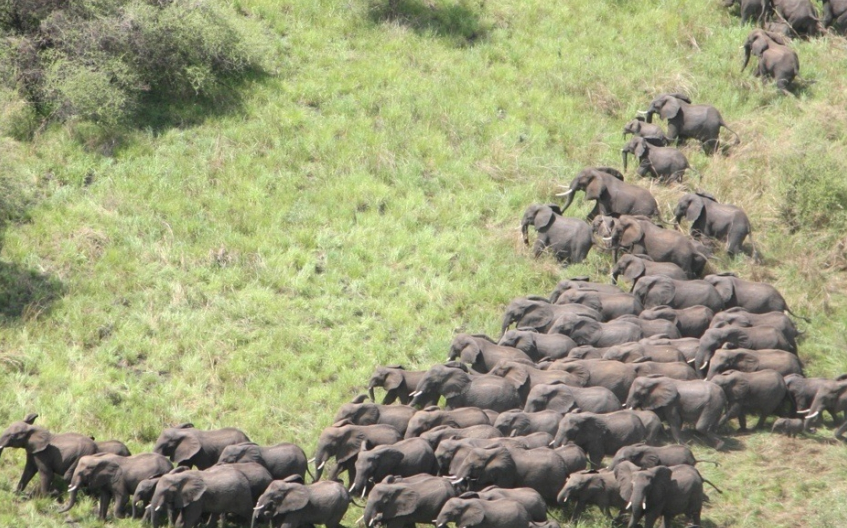
Elephants cross the plains of the Boma-Jonglei landscape in South Sudan.[Photo by Paul Elkan and Jeremy Gustafson]
The Manager of the African Parks Network asserts that South Sudan has the potential to become a global leader in wildlife conservation through the protection and preservation of its natural resources.
South Sudan is known to be a home for elephants, a great number of cheetahs, ostrich, Nile crocodiles, and pangolins, among others, but are at risk of extinction.
The endangered species also include black and white rhinos, lions and African leopards.
The Manager of the African Parks Network in South Sudan, David Simpson said South Sudan is blessed with wildlife and biodiversity.
He added that while the country is still developing, it is necessary to consider preserving the biodiversity and wildlife.
David said the African Parks Network – which is headquartered in South Africa – has set up bases in Badingilo National Park, and Boma National Park, training rangers, and bought aircraft and helicopters to help the South Sudan wildlife sector.
“South Sudan is special, its wildlife puts it above every other country in the world, it is a seriously special place, but it is not going to last forever if its protection is not taken seriously,” said David.
“I see this wildlife can be a huge benefit for South Sudan, put it number one on the world stage if we can keep it protected,” he said.
“I have to say South Sudan is my favourite country that I have ever worked in. We have an opportunity here in South Sudan to protect it [wildlife] before it gets destroyed.
“The rest of the world hasn’t done a great job of protecting their wildlife, and their biodiversity. While the development is coming to South Sudan, we need to consider how that development can damage the biodiversity of South Sudan.
“I think it is possible with careful consideration for the environment, for biodiversity, for wildlife that we can keep it and protect it while still developing the country for the benefit of people.”
South Sudan has the largest wetland in Africa, the Sudd, lying along the Nile and covering 30,000 square kilometres.
In August 2022, the Government and African Parks Network signed a 10-year renewable management agreement for Boma and Badingilo National Parks, including the wildlife corridors and proposed extension zones in the broader landscape.
South Sudan has six national parks and ten game reserves, where much of its wildlife can be seen – from giraffe and bongo to lions and African wild dogs.
Southern National Park, one of the areas for conservation in South Sudan, is an expansive habitat with huge potential for species recovery, not least for wild dogs, hyenas, lions, leopards, elephants, giant eland, and Temminck’s pangolin.
Support Eye Radio, the first independent radio broadcaster of news, information & entertainment in South Sudan.
Make a monthly or a one off contribution.
Copyright 2024. All rights reserved. Eye Radio is a product of Eye Media Limited.